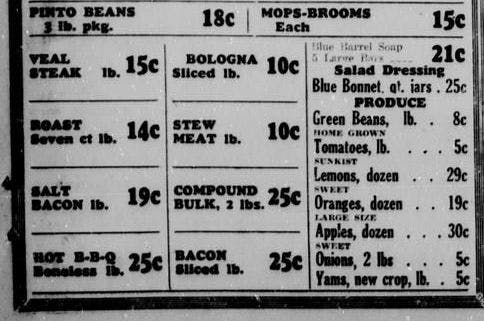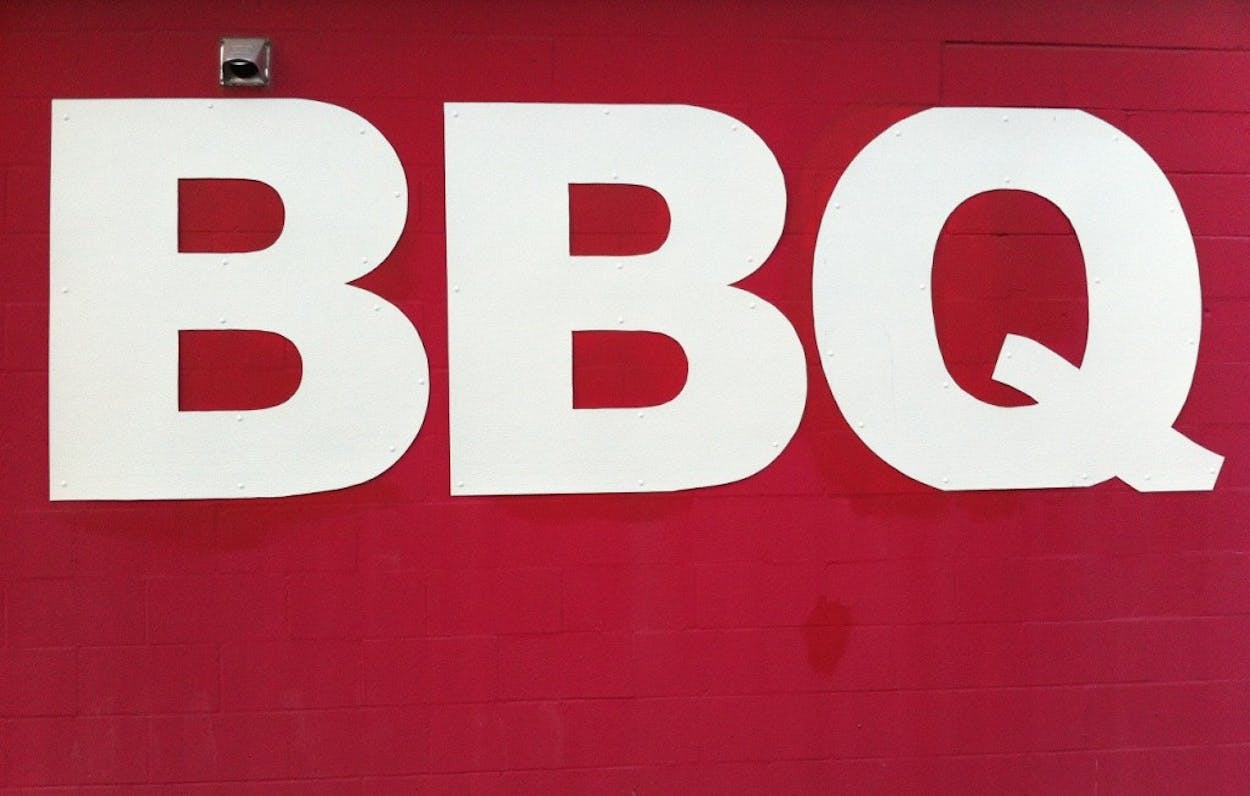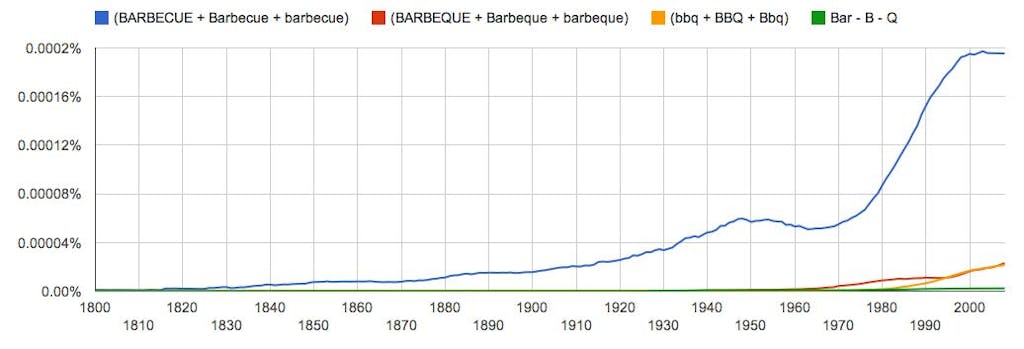The title may be misleading. I’m not looking to trace back the origins of when humans began cooking meat over fire, but rather when the term “BBQ” came into use. The myths about the origins of the word barbecue are many, so let’s dispense with a few of those first.
Bar-Beer-Cue-Pig: From the February 1982 issue of TarHeel magazine comes this explanation: “[T]he word developed out of early window advertising by a 19th-century owner of a combination whiskey bar, beer parlor, pool hall and café specializing in roast pork.” The idea is that the sign would have concisely told a prospective customer what all was available inside, and that when the message was copied it morphed into B-B-Q. There is no other reference to this theory other than this single issue of TarHeel, and every other reference of Bar-Beer-Cue-Pig points back to this one reference.
___
B Q : The theory is that a rancher using the brand ![]() was roasting whole sides of beef out on the range, and the brand was visible during the roasting. The connection was quickly made between the brand and the cooking method. While an interesting idea, how many sides of beef have been cooked over a fire with the hide still attached? Besides, as much as I hate to admit, the first mentions of barbecue in the US referred specifically to pigs.
was roasting whole sides of beef out on the range, and the brand was visible during the roasting. The connection was quickly made between the brand and the cooking method. While an interesting idea, how many sides of beef have been cooked over a fire with the hide still attached? Besides, as much as I hate to admit, the first mentions of barbecue in the US referred specifically to pigs.
Ranches with that brand and that name did, and still do, exist. B. H. “Barbecue” Campbell was most famous for running the enormous XIT Ranch near Dalhart from 1885 to 1887. The ranch he had prior to his work in Texas was in Kansas. It was named the Bar-BQ ranch which is where he got his nickname. There isn’t a ![]() brand currently registered in Texas that I could find, but our neighbors in Arizona list one active registration for the brand.
brand currently registered in Texas that I could find, but our neighbors in Arizona list one active registration for the brand.

Barbe a queue: This is a French phrasing that means “beard to tail.” A similar theory exists for a the same phrasing in Spanish where barba a cola also translates into “beard to tail” and has a resemblance to barbacoa. Neither explanation holds much water in the eyes of etymologists. These myths are in the same category as Caesar’s (fictitious) abdominal birth being the origin of “caesarean.” They sound plausible because they are tidy like the multiple backronym theories of the origination of words like OK. The Oxford English Dictionary is blunt in their debunking. “The alleged Fr. barbe a queue ‘beard to tail,’ is an absurd conjecture suggested merely by the sound of the word.”
Today, the generally accepted origination of the English word barbecue is that it’s a derivation from the Haitian word barbacoa. The Haitians were referring to the framework of sticks used to cook meat over fire, but Spanish explorers who encountered this cooking method also referred to the results – the cooked meat – as barbacoa.
Now that we know where “barbecue” did and did not come from, when did the shorter version “BBQ” make its way into the mix? Again, back to the OED. It lists the first mention of the term “BBQ” in 1939 in a classified ad where letters are at a premium. Using the new Google Ngram tool, I charted the use of the term over the past two centuries. To power the Ngram tool, Google searches their library of online books for a specific term and charts its usage from 1800-2000. BBQ is barely a blip in the late thirties, but it starts making a steady ascent in the seventies.
I’ve also included an Ngram showing the use of barbecue, barbeque and BarBQ charted against BBQ:
These Ngram charts are useful, but they are limited both by the Google books library and the fact that terms used in common language don’t always get printed the same way in books. It was time to go to the experts.
A Way With Words is a radio show on NPR hosted by Martha Barnette and Grant Barrett. They are both language experts who try to provide definitive answers about word origins and usage. I called in a few weeks ago to ask about the term BBQ. Host Grant Barrett clarified that BBQ is a complicated form of clipping where the last two letter of the abbreviation match the syllables of the full word barbecue. This is uncommon for abbreviations, but we always knew BBQ was special. As for its origin? “It started showing up in the thirties.” explained Barrett, and it was first used in restaurant signage and menus. You can hear the full conversation here.
When asked why his business was called Franklin Barbecue instead of Franklin BBQ, Aaron Franklin said BBQ just sounded like you were in a hurry. I can think of some reasons where the brevity of BBQ would have some benefits. It would speed things up in Morse Code, where BBQ is -… -… –.- or in sign language where a need for smoked meat can be done with more immediacy using BBQ instead of barbecue. Newspapers were also an obvious vein for research, as noted by the original OED entry. When you pay for advertisements by the inch, brevity is preferred. With the help of our intern Joe Misulonas, we did a Texas newspaper search for BBQ. In the August 6, 1936 issue of The Breckenridge American there was an ad for Gryder and Hill Cash Grocery and Market. Hot B-B-Q was twenty-five cents a pound. This was three years earlier than the OED entry.

My guess is that BBQ showed up on some roadside sign long before any newspaper, but I just can’t find any documentation. All of the photos of barbecue joint signs I can find before the 1930’s that don’t spell out “barbecue” use “Bar-B-Q” instead. If you find an earlier mention of “BBQ” than 1936, we want to know.










